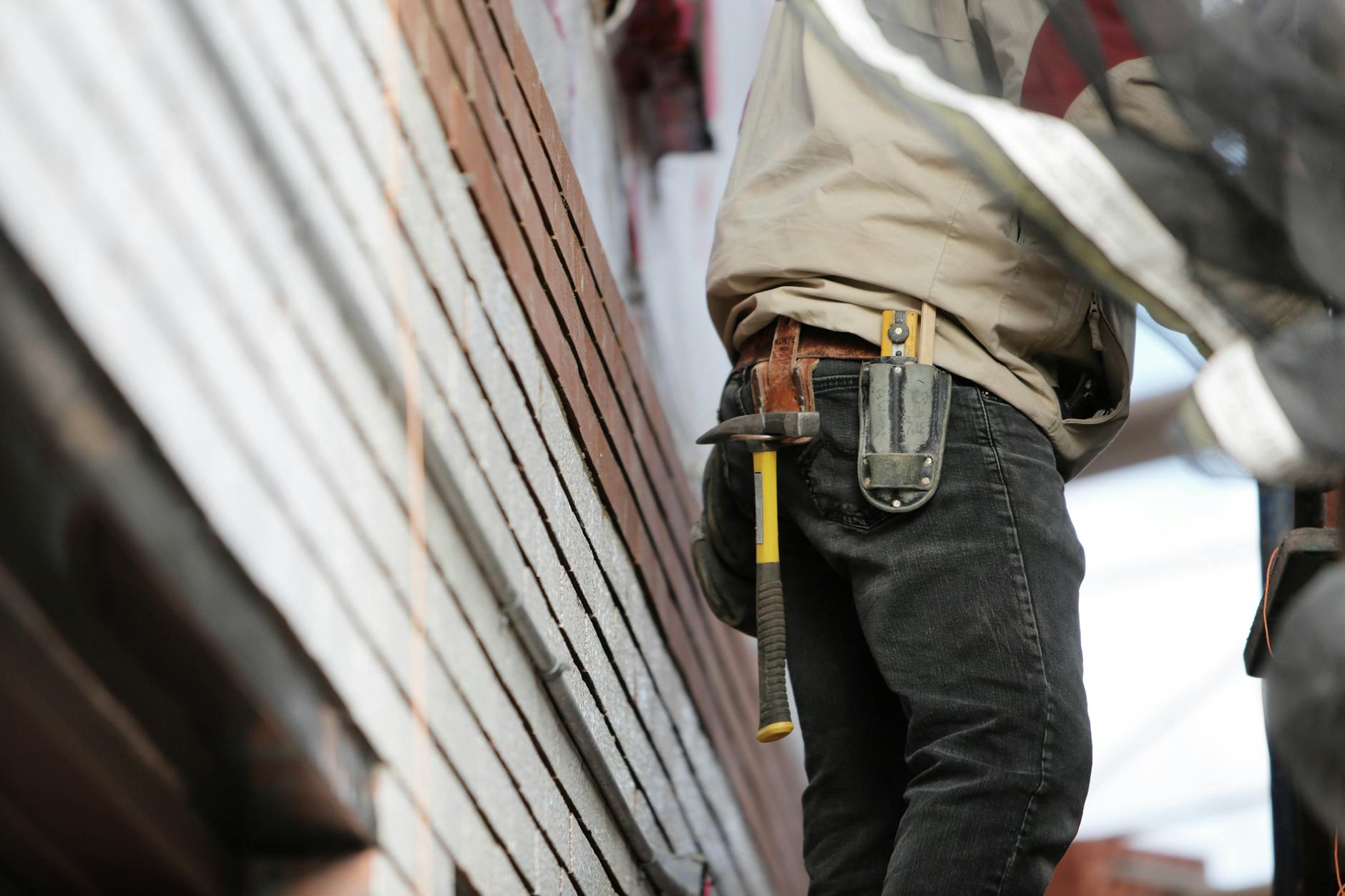There’s a certain charm that comes with rolling up your sleeves and diving into a DIY home improvement project. It’s a chance to save on labor costs, learn something new, and take pride in a job well done. However, not all projects are ideal for the DIY approach. Some tasks call for the expertise and experience of a professional carpenter. Knowing when to hire a pro can save you time, money, and a whole lot of frustration.
So, how does one make the smart choice between DIY and professional carpentry? It’s all about understanding the scope and complexity of the project. A small job like painting your deck might be a great opportunity to learn a new skill. Be prepared, though. There might be a few small mistakes along the way. It’s all part of the learning process. But, if you’re looking at a major renovation that requires permits or specialized knowledge, it’s best to hire a professional.
The bottom line is, there’s no one-size-fits-all answer. Each project is unique, and what works for one person might not work for another. It’s about finding the right balance between the satisfaction of DIY and the expertise of a professional. The Benefits of DIY Carpentry
The Benefits of DIY Carpentry
Embarking on a DIY carpentry project can be a fulfilling and rewarding experience. Not only does it provide an opportunity to save money, but it also allows you to unleash your creativity and achieve a sense of personal satisfaction. In this section, we will explore the various benefits of DIY carpentry.
Cost Savings

One of the primary benefits of DIY carpentry is the potential for significant cost savings. By taking on the project yourself, you can bypass the expenses associated with hiring a professional carpenter. Labor costs can add up quickly, and by investing your own time and effort, you can keep more money in your pocket.
Personal Satisfaction and Sense of Achievement

Undertaking a DIY carpentry project allows you to experience a deep sense of personal satisfaction and achievement. From the initial planning stages to the final touches, you have complete control over the entire process. As you witness your vision come to life, the feeling of accomplishment is truly unmatched.
Customization and Creative Freedom

With DIY carpentry, you have the freedom to customize your project to suit your specific needs and preferences. Unlike hiring a professional, you are not limited by predefined designs or styles. Whether you want to add unique embellishments or tailor the dimensions to fit your space, DIY carpentry empowers you to unleash your creativity and bring your ideas to fruition.
When to Hire a Professional Carpenter
When it comes to carpentry projects, there may be times when it’s best to leave the work to the professionals. Hiring a skilled and experienced carpenter can save you time, ensure quality craftsmanship, and provide peace of mind. Here are a few situations where hiring a professional carpenter is recommended:
Complex Projects and Structural Work

When faced with complex carpentry projects or structural work, it’s crucial to hire a professional carpenter. These types of projects often require specialized knowledge and expertise. Professional carpenters have the skills and experience to tackle intricate designs, handle challenging materials, and ensure proper structural integrity. They can navigate complex blueprints and work with precision, resulting in a finished project that meets your expectations while adhering to safety standards.
Lack of Skills and Experience

If you lack the necessary skills and experience in carpentry, it’s wise to hire a professional. Carpentry requires a deep understanding of tools, materials, and techniques. Without the proper know-how, you could end up with subpar results or even cause damage to your property. Professional carpenters have honed their skills through years of training and hands-on experience. They can turn your vision into reality, ensuring a high-quality outcome that exceeds your expectations.
Limited Time and Deadline Constraints
When you have limited time or strict deadline constraints, hiring a professional carpenter is a smart choice. DIY projects often take longer than anticipated, especially if you’re juggling other responsibilities. Professional carpenters are equipped with the tools and manpower to efficiently complete projects within the given timeframe. By hiring a professional, you can save yourself the stress of rushing to finish a project and have the assurance that it will be completed on time.
To learn more about carpentry techniques and project ideas, check out CarpentryWebsite.com for valuable resources and inspiration.
Factors to Consider When Deciding
When it comes to carpentry projects, deciding between a DIY approach or hiring a professional can be a tough choice. There are several factors you should consider before making a decision. Keep in mind your budget and financial resources, the project size and complexity, your time availability, as well as safety risks and legal requirements.
Budget and Financial Resources
One of the first things to consider is your budget and financial resources. DIY projects can often seem more cost-effective since you won’t have to pay for labor. However, you need to factor in the cost of materials, tools, and any potential mistakes that could end up costing you more in the long run. On the other hand, hiring a professional carpenter means you’ll have to allocate funds for their services, but they will bring their expertise and experience to the table.
Project Size and Complexity
The size and complexity of your carpentry project should also play a role in your decision-making process. Smaller, simpler projects like building a small shelf or installing a door handle may be well-suited for a DIY approach, especially if you have some basic carpentry skills. However, larger projects that involve structural changes or intricate designs might require the expertise of a professional to ensure they are completed safely and accurately.
Time and Availability
Consider how much time you have available to dedicate to the project. DIY projects can be time-consuming, especially if you’re still learning carpentry skills. You’ll need to set aside time for planning, purchasing materials, and actual construction. Hiring a professional carpenter can save you time as they will take care of the project from start to finish, allowing you to focus on other aspects of your life.
Safety Risks and Legal Requirements
It’s crucial to assess the safety risks associated with your carpentry project. Some projects, such as working with power tools or handling heavy materials, can pose risks if not done correctly. Professionals are trained to handle these risks and ensure safety measures are in place. Additionally, certain projects may require permits or need to adhere to local building codes. Professionals are well-versed in these legal requirements, ensuring your project is compliant.

Considering these factors will help you make an informed decision when choosing between a DIY approach or hiring a professional carpenter. Keep in mind your budget, project size, and complexity, time availability, as well as safety risks and legal requirements. Remember, it’s important to weigh the pros and cons based on your specific situation and skills to achieve the best outcome for your carpentry project. How to Find and Choose a Professional Carpenter
How to Find and Choose a Professional Carpenter
Recommendations and Referrals

When looking for a professional carpenter, one of the best ways to start is by asking for recommendations and referrals from friends, family, and neighbors. They may have had positive experiences with carpenters and can provide valuable insights. Additionally, consider reaching out to local home improvement stores or contractors for their recommendations.
By gathering recommendations and referrals, you can narrow down your options and find carpenters who have a proven track record in delivering quality work.
Online Research and Reviews

In the digital age, conducting online research is essential for finding a professional carpenter. Utilize search engines and social media platforms to find carpenters in your area. Read through their websites to learn more about their services, experience, and specialties.
Furthermore, take advantage of online review platforms like Yelp, Google Reviews, and Angie’s List to see what previous clients have to say about their experiences with the carpenters you’re considering. Pay attention to both positive and negative reviews to get a well-rounded understanding.
Credentials and Certifications

When choosing a professional carpenter, it’s crucial to consider their credentials and certifications. Look for carpenters who have received formal training through apprenticeships or trade schools. Carpenters who have completed apprenticeships and earned journeyman or master status demonstrate a higher level of expertise.
Additionally, check if the carpenter is licensed and insured. A valid carpentry license ensures that the carpenter meets state-mandated standards and carries the necessary insurance and bonding. This provides you with extra protection in case of any accidents or damages during the renovation process.
Comparing Quotes and Estimates
When you have narrowed down your options to a few carpenters, it’s essential to compare quotes and estimates. Reach out to each carpenter and provide them with detailed information about your project. Ask for a written quote that includes the scope of work, materials, and estimated timeline.
Comparing quotes will help you determine the most cost-effective option while ensuring the quality of work. Remember, the cheapest option may not always be the best, as it could indicate subpar craftsmanship or the use of inferior materials.
By following these steps, you can find and choose a professional carpenter who meets your needs and budget. Remember to prioritize quality, experience, and customer reviews when making your decision.
Conclusion
In conclusion, when it comes to deciding between DIY and hiring a professional for carpentry projects, it is essential to consider various factors. If the project is small and manageable, and you have the time and patience to learn and work through any mistakes, then DIY may be a viable option. However, if the project has the potential for serious consequences or requires specialized knowledge and permits, it is best to hire a professional. Additionally, if your time is better spent on other activities, outsourcing the work to a contractor can save you time and ensure a high-quality result. Ultimately, the decision should be based on your comfort level, skillset, and the specific requirements of the project.

